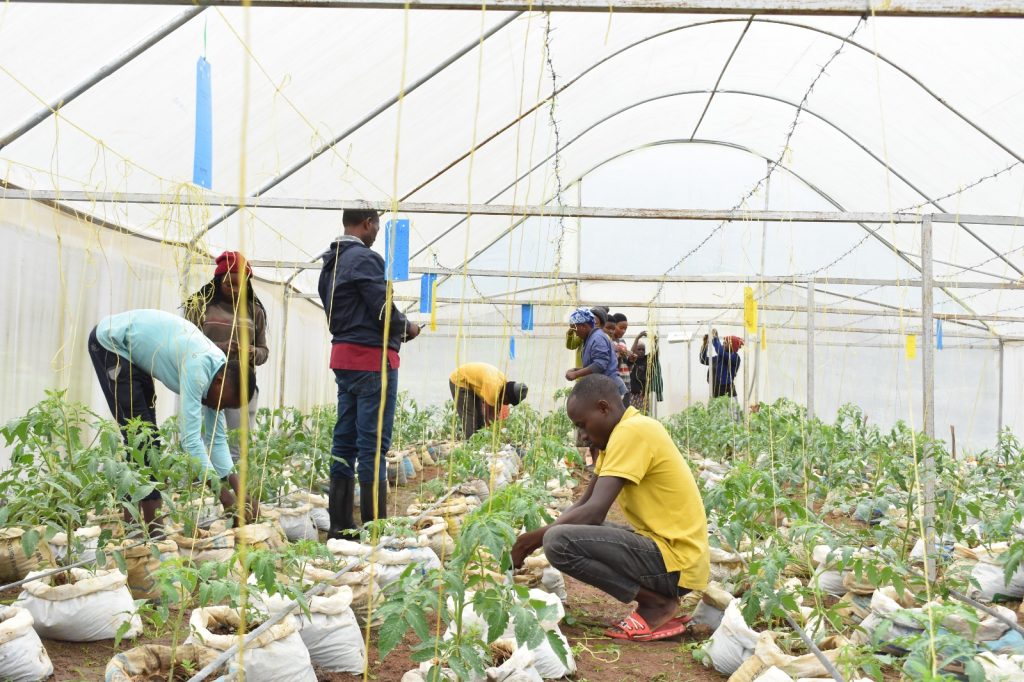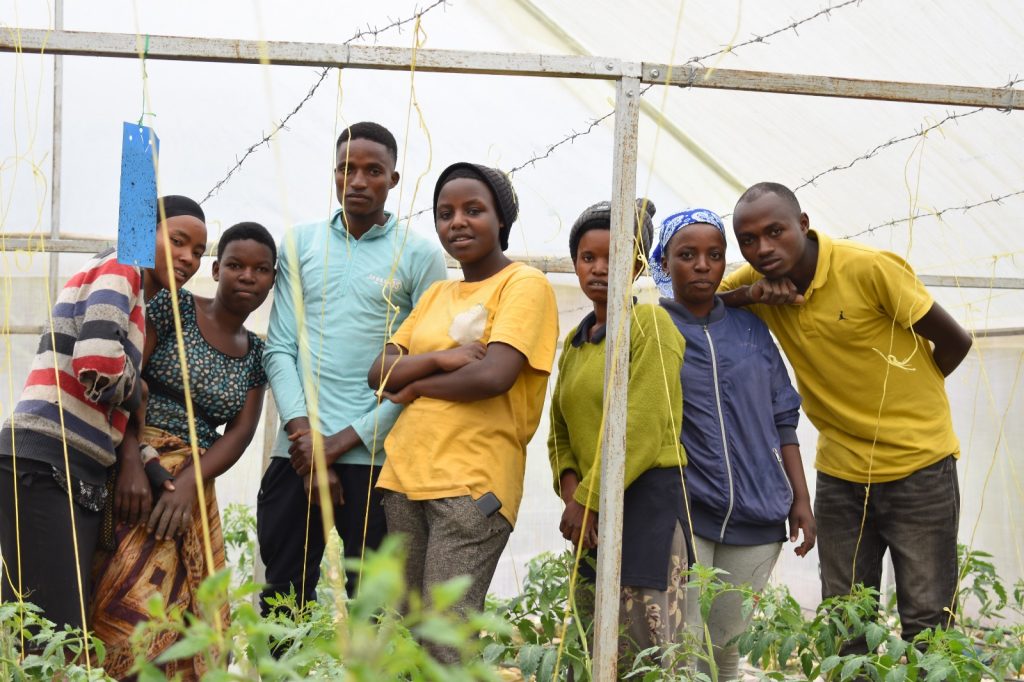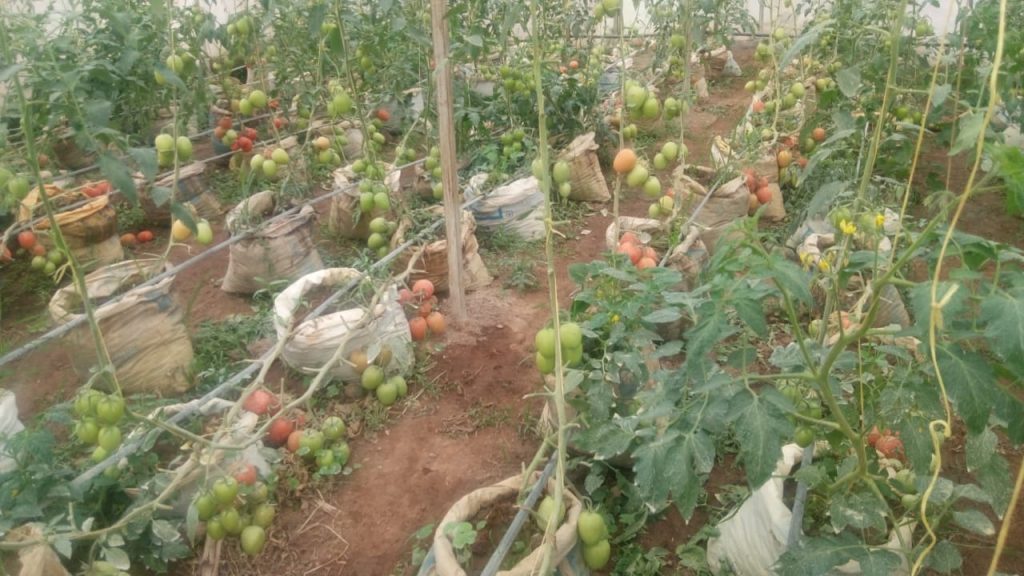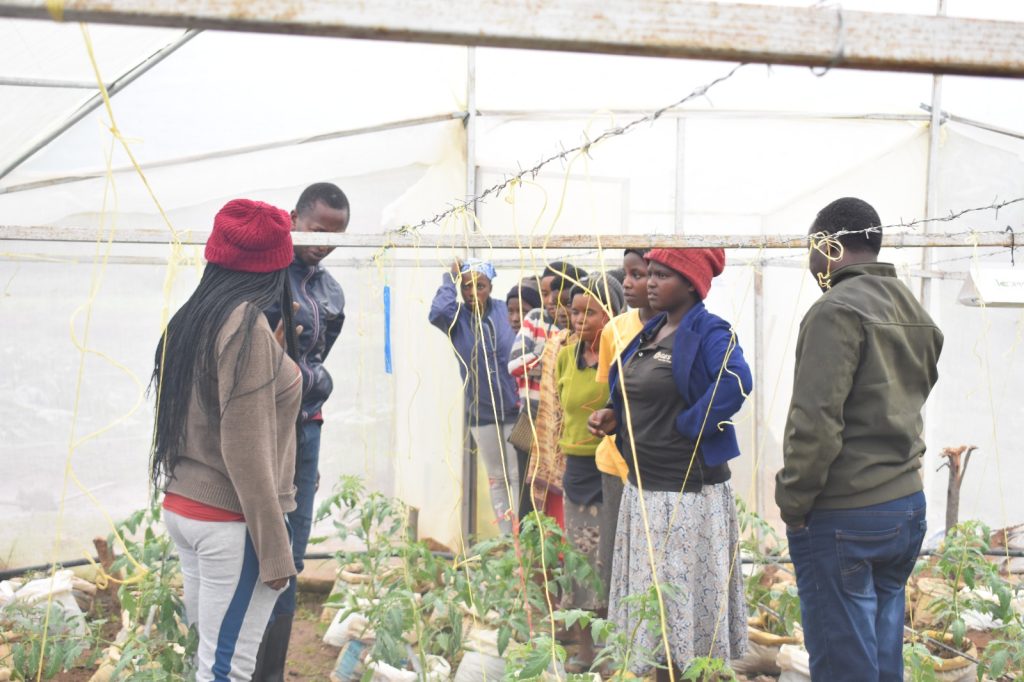Rwanda, known for its stunning landscapes and resilient people, is also at the forefront of a transformative agricultural revolution. The country’s commitment to sustainable development and food security has led to a surge in greenhouse farming. This practice is revolutionizing how crops are grown and ensuring a more resilient future for its people. At the heart of this revolution is RODI Rwanda (Rwanda Organization for Development Initiatives), a pioneering non-profit organization(NGO) empowering farmers and communities to harness the power of greenhouse technology.
The Greenhouse Revolution: A Catalyst for Change
Greenhouses are controlled environments that allow farmers to optimize crop production by regulating temperature, humidity, and light. This technology offers a myriad of benefits, including:
- Increased Productivity: Greenhouses enable farmers to grow a wider variety of crops, often with higher yields, regardless of the season. This boosts farmers’ incomes and contributes to food security.
- Climate Resilience: Greenhouses protect against unpredictable weather conditions, such as droughts, floods, and extreme temperatures. This is particularly crucial in Rwanda, where climate change significantly threatens agriculture.
- Efficient Resource Utilization: Greenhouses can dramatically reduce water consumption through advanced irrigation systems and minimize the use of pesticides and fertilizers. This promotes sustainable farming practices and protects the environment.
RODI Rwanda: A Driving Force

RODI Rwanda has been instrumental in driving the adoption of greenhouse farming in Rwanda. The organization’s comprehensive approach encompasses the following key areas:
- Training and Capacity Building: RODI Rwanda provides farmers with the necessary skills and knowledge to operate greenhouses successfully. This includes training on greenhouse construction, crop management, and sustainable farming practices. A Rwanda is fostering a new generation of agricultural entrepreneurs.
- Empowering farmers with the necessary tools for Affordable Technology: One of the biggest challenges for small-scale farmers is the initial investment in greenhouse infrastructure. RODI Rwanda works tirelessly to make greenhouse technology more accessible by providing affordable options and flexible financing plans. This ensures that farmers from all backgrounds can participate in the greenhouse revolution.
- Market Linkage and Value Chain Development: RODI Rwanda connects farmers to local and international markets. By facilitating market linkages and promoting value chain development, the organization helps farmers maximize their profits and ensure the sustainability of their businesses.
- Empowering Women and Youth: RODI Rwanda encourages gender equality and youth empowerment in agriculture. The organization actively involves women and young people in its greenhouse programs, providing them with the necessary training and resources to succeed. This contributes to economic development and empowers marginalized groups within Rwandan society.
Success Stories: A Testament to the Impact

The impact of RODI Rwanda’s work is evident in the numerous success stories of farmers who have benefited from greenhouse technology. Many farmers have experienced significant increases in their incomes and improved their livelihoods. Additionally, adopting greenhouse farming has contributed to food security and reduced poverty in rural areas.
A Brighter Future for Rwanda

RODI Rwanda’s contribution to Rwanda’s greenhouse revolution is a testament to the organization’s dedication to sustainable development and the empowerment of its people. By promoting greenhouse farming, RODI Rwanda is helping to build a more resilient and prosperous future for Rwanda. As the country embraces this innovative agricultural practice, it is poised to become a leader in the region’s sustainable agriculture and food security.
The Future of Greenhouse Farming in Rwanda

As Rwanda continues to embrace greenhouse farming, there is immense potential for further growth and development. The following trends and opportunities are shaping the future of this innovative agricultural practice:
- Technological Advancements: Technology integration into greenhouse farming is on the rise. This includes using sensors to monitor environmental conditions, automated irrigation systems, and data analytics to optimize crop production. These advancements will enhance efficiency and sustainability.
- Diversification of Crops: Farmers are exploring cultivating a more comprehensive range of crops in greenhouses, including high-value produce like exotic fruits and vegetables. This diversification can increase income and reduce market risks.
- Export Markets: With the growing demand for high-quality, sustainably produced agricultural products, Rwanda has the potential to expand its exports of greenhouse-grown produce to international markets. This can contribute to economic growth and foreign exchange earnings.
- Climate Change Adaptation: Greenhouse farming remains a crucial strategy for adapting to the challenges posed by climate change. As climate variability increases, greenhouses offer a controlled environment that can mitigate the risks associated with unpredictable weather patterns.
- Public-Private Partnerships: Partnerships between the government, private sector, and non-governmental organizations can play a vital role in supporting the growth of greenhouse farming in Rwanda. These partnerships can facilitate access to financing, technology, and market opportunities.
Challenges and Opportunities
While the future of greenhouse farming in Rwanda looks promising, there are also challenges to be addressed:
- Initial Investment: The initial investment in greenhouse infrastructure can be a barrier for some farmers. However, this hurdle can be overcome with appropriate financing options and government support.
- Access to Inputs: Ensuring a reliable supply of inputs, such as seeds, fertilizers, and pesticides, is essential for the success of greenhouse farming. Government policies and private sector initiatives can help address this challenge.
- Market Fluctuations: Price fluctuations in the agricultural market can impact the profitability of greenhouse farming. Diversification of crops and effective market strategies can help mitigate these risks.
Conclusion
Greenhouse farming is poised to be pivotal in Rwanda’s agricultural sector. By leveraging technology, diversifying crops, and expanding export markets, Rwanda can position itself as a sustainable agriculture and food security leader. With the continued support of organizations like RODI Rwanda and the government, the future of greenhouse farming in Rwanda looks bright.
Join the Revolution
At RODI Rwanda, we believe every farmer deserves the opportunity to thrive regardless of their background or resources. We invite you to be part of our mission to transform Rwanda’s agricultural landscape through greenhouse farming.
How You Can Get Involved:
- Donate: Your financial support enables us to expand our programs, provide training to more farmers, and ensure access to affordable greenhouse technology.
- Volunteer: Share your skills and expertise by volunteering your time to support our initiatives.
- Partner with Us: Collaborate with RODI Rwanda on projects that promote sustainable agriculture and community development.
Contact Us:
- Visit Our Website: https://rodirwanda.org.rw/
- Email: info@rodirwanda.org.rw
- Phone: +250 798 493 400
- Our Address: KK 15 Rd, Diamond House, 2nd floor

